This is not the Bangladesh we stood in the line of fire for

At 2pm on August 5, 2024, Bangladesh was freed from an autocrat. It baffles me that I can finally use the word "autocrat" on print to describe the fallen Prime Minister Sheikh Hasina because our law made sure we couldn't since 2018.
My brother and I rushed to the streets not being able to hold our excitement. The wind was electric. I had never seen so many people on the streets, with flags in their hands. Families carried their children on their shoulders, chanting slogans of victory. Rickshaw pullers saluted students, giving speeches standing on their rickshaws on how they refuse to live life under any tyrant, goons or chandabaaj (people who use their muscles to extort money).
We could breathe a sigh of relief; as Sheikh Hasina fleeing the country meant the enforced disappearances—of students, journalists and activists, police-run raids in the houses of student protesters under the directive of the former premier and the mindless killing of students at the hands of Bangladesh Chhatra League (BCL) had come to a stop. Bangladesh is (for now) a country free of censorship of any kind. But the joy soon transitioned to utter horror as we walked from Motijheel to Shahbagh.
At Motijheel, crowds gathered in front of Sonali Bank and ripped off the posters of the autocrat Sheikh Hasina. We cheered till we heard someone discussing how we should tear down everything built under the Awami League regime. We brushed it off at first, thinking that after such a long time, people's sense of freedom has been awakened and there will be some extreme views coming in because of this momentary period of boundless freedom.
However, as we started walking towards Shahbagh, the smiles started to fade from our faces. People were carrying army officials on their shoulders thinking they were the ones who stepped in and brought this freedom. They got on top of their armoured vehicles, raised their flags, danced. I could see some people in the public visibly uncomfortable by the scene, but they too shrugged it off because hey, we're celebrating!
When we were crossing Suhrawardy Uddyan, we could see a thick cloud of smoke from the outside, so we walked in to see what happened. Vandals had set large stages, which were set up for commemorating mourning day by the Awami League regime, on fire. A statue replicating Bangabandhu's historical March 7 speech was set on fire. We asked people to stop the fires immediately since if it spreads to a few nearby trees, the whole park would be set ablaze. In return, we got looks of disgust from people. A student wearing his ID card ran up to us and said, "We have been trying to stop these people from setting things on fire. Don't waste your breath, apu."
Worried, we started walking past the burning pandals. The smoke was so thick that it became hard to breathe and we walked into a crowd of people beating up a BCL-affiliated student with whatever they could find. Rods, bricks, bamboo, sticks—you name it.
The angry mob said they found him with weapons. There were a few students protecting the person, shouting and requesting that we hand him over to the army and not take the law in our hands. At one point, all of us, who were trying to save this person's life were being called Chhatra League or Razakar, just because we didn't want another life being taken before our eyes. As protestors, all of us who stood in the line of fire had seen enough people, particularly students, being shot, maimed, and killed. It was ironic how we were now taking hits from a mob to save the life of someone we were supposed to hate. At one point, the mob outnumbered us, and the person was beaten to death. We couldn't retrieve his identity or cross-check if he was associated with BCL fearing we might get killed.
A few of us had strayed from the mob to ask the army officials at the barrack of the Shahbagh intersection to just show up and clear the people. They said they can't help. From then on, we knew the kind of anarchy we're seeing may only be the beginning. Being on the ground, we hadn't yet heard of the communal violence on Hindu communities, temples being torched, and the attacks on Awami League affiliated members and their families, alongside policemen and their families.
We walked towards TSC and saw microbuses being set on fire. Vandals were aggressively telling people not to take videos or photographs. Chairs were being stolen from the halls and the people who looted Gono Bhaban, the prime minister's residence, were cheered on as they brought in the chairs.
At 5pm, I started from Shahbagh towards The Daily Star building. On the way, multiple men on bikes were honking their horns, catcalling women. Mobs were targeting TV news offices in Karwan Bazar, which did not telecast the student protest coverage, as they feared pressure from the authorities. ATN Bangla's office was completely vandalised till the fifth floor, some people were seen looting the building. The same happened to a few other TV news channel offices. I could see a witch-hunt in place and, fearfully, I kept thinking, "They'll kill me if I speak up now."
I didn't know what to think and I felt numb at the horror I witnessed. What was the point of Abu Sayeed, Mir Mugdho and Farhan Faiyaz and the 200-plus people's deaths if, during the first hours of independence, this is the picture of freedom we paint throughout the country? Are we really free if we don't take into the consideration the concern of our minority communities? Many had asked the same question after witnessing the mindless vandalism on Monday. We are so vulnerable and afraid now that rational people have started to believe in the endless disinformation.
If we still find hanging Sheikh Hasina's undergarments on fans and valiantly showing them in front of the media funny, I must say we are paving a dangerous precedence for religious bigots and other radical groups to use the same rhetoric and crack down on women empowerment with the logic—if you empower women, you will get a tyrant like Sheikh Hasina. The politics of the AL regime will be used as a line of defence for them to channel their hidden agendas. As a nation, we need to be far more vigilant than we have been in these dark days of no law and order.
The reason why I think I was most horrified is that the mob justified their vandalism with the argument that "they did this to us, so we will do the same to them." No. Students did not sacrifice their lives to establish an order of vigilante justice. They did it so that people, no matter from what background, have the right to speak up, claim justice and call out injustice.
The movement is called "Anti-discrimination Movement" and in no way can we let that rhetoric be politicised or diluted. Many of you can already notice how BNP has band-wagoned on the student's right to justice as a movement that they had always sided with.
I am proud that the student leaders I have put my faith in have called out this mindless violence and set up watch parties. I am proud that they are constantly distinguishing that these mindless acts of vandalism are not what we side with. I hope they continue to create this stride. Because when I saw vandals parading with their motorbikes at Manik Mia avenue on Monday, it seemed to me that we just replaced Chhatra League with Chhatra Dal, thus opening up an avenue for the historical cycle to repeat.
We are at a monumental time in Bangladesh's history to create change. We have an opportune moment to redefine the Bangladesh we want to see without being deterred by the apathetic thought of: "We will simply never see this in Bangladesh."
The civic society has the biggest role to play now, to draw a line in the sand—and that's the only thing that has been giving me hope. Amidst this mindless vandalism, civic society groups made human chains to stop vandals from destroying police stations, they helped to return stolen items from Gono Bhaban, imams from mosques along with students joined the watch parties outside temples to protect them. This is the Bangladesh I dreamt of, my grandfather dreamt of as a student politician during the Liberation War, and the countless other freedom fighters who took a bullet. This is the time to call out all sorts of injustice that hindered our society under an autocracy for so long—not just politicians, but also businessmen who licked Awami League's feet and who will now show support for our students, acting like they were supporting them all along.
It is time for us to be vigilant on all fronts, it's so much harder to protect freedom than to achieve it. If nothing else, what this protest proved is that students have the power to take down an autocrat that everyone feared, we can again take down any one who stands in the way of building a free Bangladesh for all. Our work has just begun.
Nazifa Raidah is a development practitioner. Previously she worked as a journalist at the Daily Star. Reach her at [email protected]
Views expressed in this article are the author's own.
Follow The Daily Star Opinion on Facebook for the latest opinions, commentaries and analyses by experts and professionals. To contribute your article or letter to The Daily Star Opinion, see our guidelines for submission.

 For all latest news, follow The Daily Star's Google News channel.
For all latest news, follow The Daily Star's Google News channel. 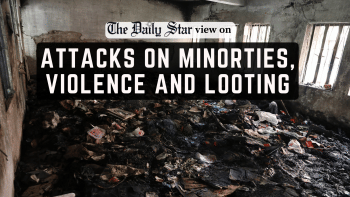
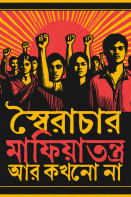


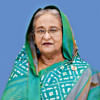
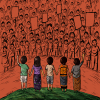
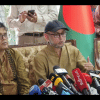
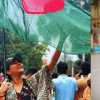



Comments